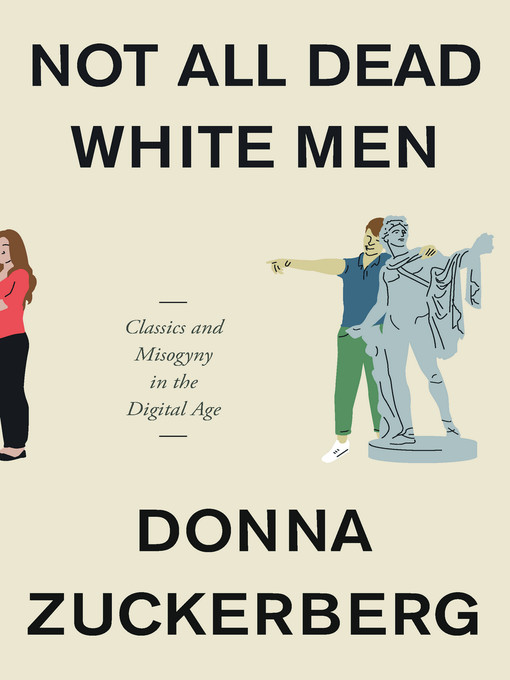A Times Higher Education Book of the Week
A virulent strain of antifeminism is thriving online that treats women's empowerment as a mortal threat to men and to the integrity of Western civilization. Its proponents cite ancient Greek and Latin texts to support their claims—from Ovid's Ars Amatoria to Seneca and Marcus Aurelius—arguing that they articulate a model of masculinity that sustained generations but is now under siege. Not All Dead White Men reveals that some of the most controversial and consequential debates about the legacy of the ancients are raging not in universities but online.
"A chilling account of trolling, misogyny, racism, and bad history proliferated online by the Alt-Right... Zuckerberg makes a persuasive case for why we need a new, more critical, and less comfortable relationship between the ancient and modern worlds in this important and very timely book."
—Emily Wilson, translator of The Odyssey
"Explores how ideas about Ancient Greece and Rome are used and misused by antifeminist thinkers today."
—Time
"Zuckerberg presciently analyzes these communities'...embrace of stoicism as a self-help tool to gain confidence, jobs, and girlfriends. Their adoration of men like Marcus Aurelius, Epictetus, and Ovid...is founded in a limited and distorted interpretation of ancient philosophy...lending heft and authority to sexism and abuse."
—The Nation
"Traces the application—and misapplication—of classical authors and texts in online communities that see feminism as a threat."
—Bitch Media
-
Creators
-
Publisher
-
Release date
October 8, 2018 -
Formats
-
Kindle Book
-
OverDrive Read
- ISBN: 9780674989825
-
EPUB ebook
- ISBN: 9780674989825
- File size: 476 KB
-
-
Languages
- English
-
Reviews
-
Publisher's Weekly
October 22, 2018
Classicist Zuckerberg, the editor-in-chief of Eidolon, aims to take back the writings of the ancients from misogynist online communities where men claiming to be the “defenders of the cultural legacy of Western Civilization... weaponize Greece and Rome in the service of their agenda.” Hoping to promote broader understanding of the classics, Zuckerberg analyzes the subdivisions of the online “manosphere” or “red pill” community, identifying three main factions—men’s rights activists (MRAs), members of the pick-up artist community (PUAs), and “men going their own way” (MGTOW)—and looking at their claims that classical texts affirm a long, idealized tradition for their “reactionary gender politics.” For example, she writes, some assert that Ovid’s Ars Amatoria is a straightforward model for PUA techniques, and some MGTOW look to Stoic philosophy to justify a belief that women are unreliable because they are supposedly more emotional than men. Contradicting these readings, she gives nuanced context about the texts in their own times. Ultimately, though Zuckerberg’s profile of the red pill community is uncomplimentary and potentially alarmist, her detailed analysis and reasoned tone inadvertently give some credence to the red pillers’ textual analyses, being thoughtful and balanced (including in an admission that “Misogyny appears early in Greek literature”) where her opponents are facile and extreme. This work may be of more interest to those concerned about the manosphere than those seeking feminist readings of classical texts.
-
Formats
- Kindle Book
- OverDrive Read
- EPUB ebook
subjects
Languages
- English
Loading
Why is availability limited?
×Availability can change throughout the month based on the library's budget. You can still place a hold on the title, and your hold will be automatically filled as soon as the title is available again.
The Kindle Book format for this title is not supported on:
×Read-along ebook
×The OverDrive Read format of this ebook has professional narration that plays while you read in your browser. Learn more here.

